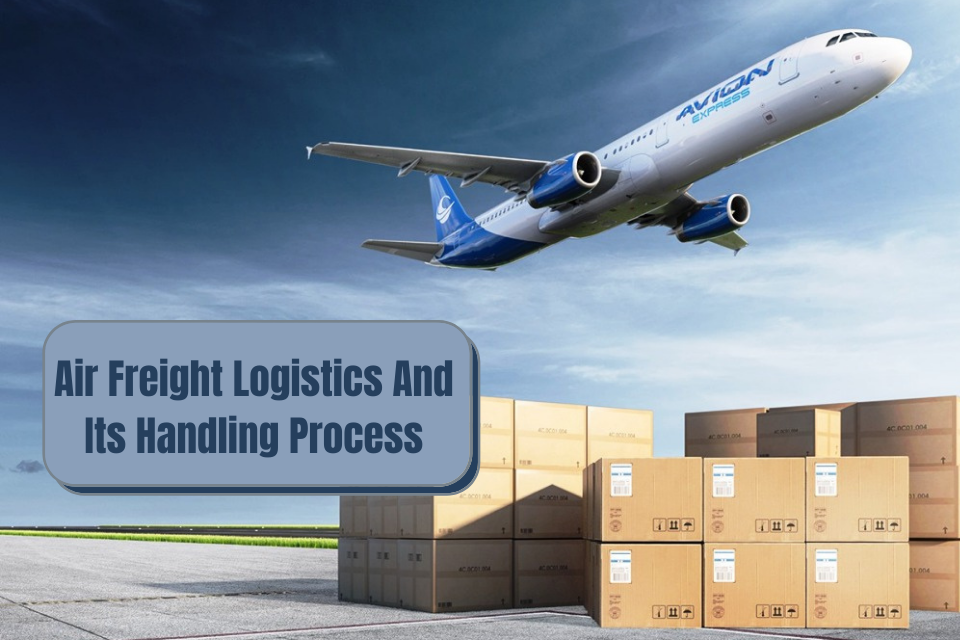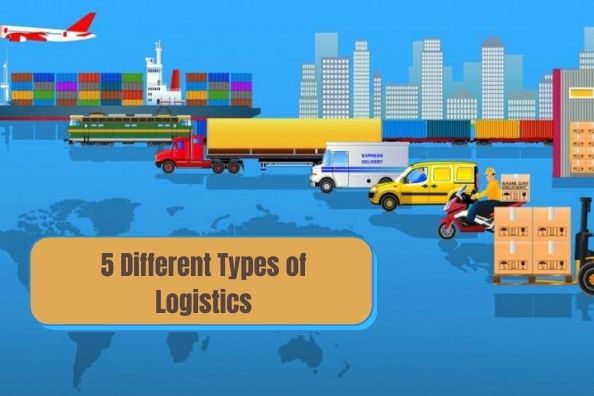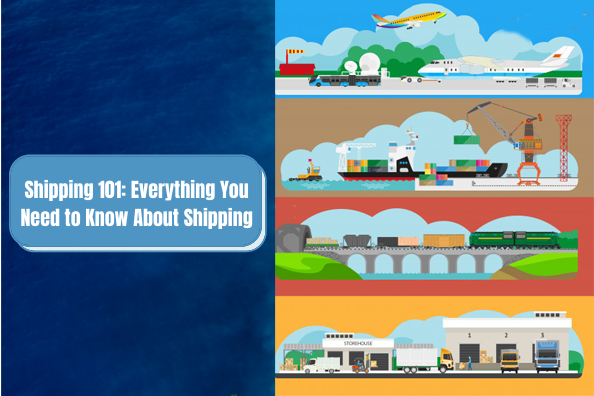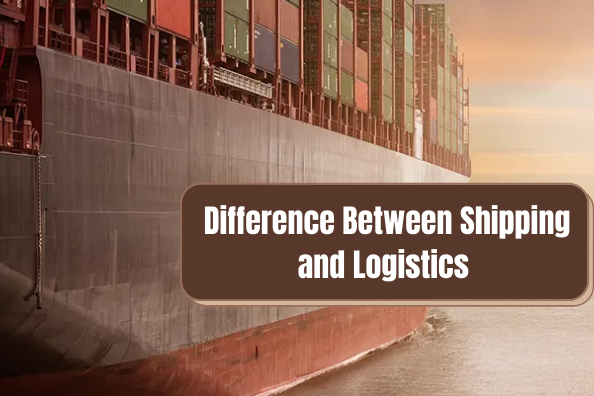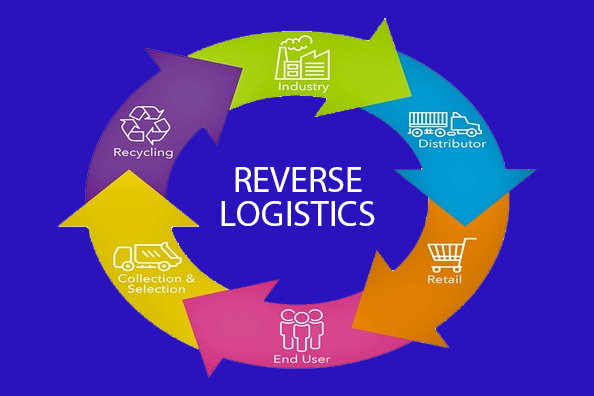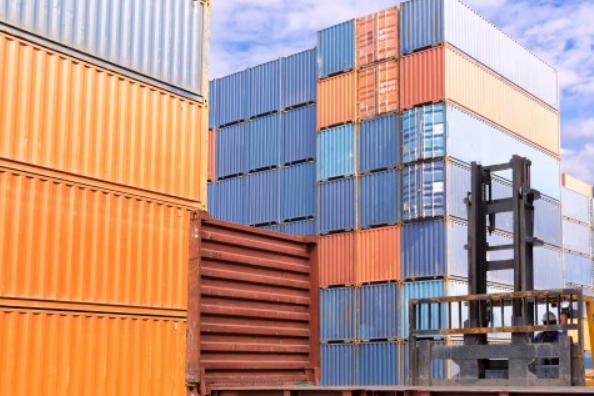The transfer and transport of commodities by an air carrier, whether charter or commercial, is what air freight logistics is all about. Many in the logistics industry choose this option since packages can be sent from commercial and passenger aircraft gateways to any location where a plane can fly and land.
Goods delivered by air also have the advantage of high-speed, time-sensitive shipping to any location in the world, which is extremely beneficial to small and mid-sized businesses because it allows them to participate in international trade quickly and efficiently.
Furthermore, air freight provides the highest level of security because airport security monitors and controls every cargo entering and exiting the country.
Different types of air cargo services :
-
Express Air Service
If your cargo is being shipped by express air, it will be placed on a direct flight to its final destination. The most expensive flying service is Express air.
-
Standard Air Service
If your cargo is being shipped by regular air, it will most likely make stops at one or two airports, where it will either change planes or be loaded or unloaded with other cargo. The most popular aviation service is the standard air service.
-
Deferred Air Service
Your cargo will make many stops along the way to its final destination if it is shipped via deferred air service. Although this air service is less expensive than express air service, it is still more costly than shipping LCL (less than container load).
IATA – Cargo Agency Program
The International Air Transport Association (IATA) is the globally recognised trade association for airlines .It is a trade association that represents, leads, and serves the aviation industry.
Its main task is to assist and support the aviation industry by establishing global standards for airline safety, security, efficiency, and sustainability. They also lead and assist its members while also effectively representing their interests in a way that boosts the air transport industry
An IATA cargo agent is an organisation that is approved and controlled by the International Air Transport Association (IATA) for international air transportation.
IATA’s Cargo Agency Program is extremely beneficial to both airlines and agencies. It enables freight forwarders to achieve industry accreditation for their financial and professional capabilities while also regulating the connections between member airlines and allocated sales agents. IATA, in collaboration with FIATA, is now optimizing its Air Cargo Program in order to better suit the needs of today’s air transport industry, resulting in greater benefits for both airlines and forwarders.
Process of Air Freight or How does it work?
Air freight is frequently arranged by an experienced Freight Forwarding Agency. Freight Forwarders work with a variety of companies to carry goods on behalf of their clients via sea, air, or road.
Despite the fact that some freight forwarders have their own warehouses and trucks, they are not always the ones that handle the transportation.
A freight forwarder handles the entire process with a one-stop solution at a reasonable price, dealing with the International Air Transport Association (IATA) and stringent regulations that control what is allowed on board, and handling intricate dealings with the International Air Transport Association (IATA).
Also Read:
Importance of Logistics in Supply Chain
Why use a freight forwarder?
Freight forwarders are part of the supply chain’s transportation logistics process, and their main role is to ensure that air shipments are managed in such a way that they are ready for delivery by aircraft operators.
Freight forwarders are not affiliated with any carriers. Finding and negotiating the best freight rates on behalf of their clients is an important element of their job.
Freight forwarders are experts who through their contacts and knowledge are set up to rearrange the better rates available. Freight forwarders are in a strong buying position to drive down prices because of the volume of business they may send a carrier’s way through a variety of different clients.
If freight forwarders are removed from the equation, individual importers and exporters will have to study and arrange their own charges directly with the carrier.
A freight forwarder also handles all the paperwork involved when trading internationally. This includes:
- Tracking Inland Transportation;
- Preparation of Shipping and Export Documents;
- Warehousing;
- Booking Cargo Space;
- Negotiating Freight Charges;
- Freight Consolidation;
- Cargo Insurance; and
- Filing Insurance Claims.
The following are the general stages for receiving air freight shipment of your goods:
- Choose an airship cargo company, negotiate and fix a cost to ship your cargo.
- The Freight Forwarder will arrange for your cargo to be picked up pre-packaged or for packing to be completed prior to transit.
- The products goods will be transported to the airport and go through customs inspections at the place of origin.
- The plane is laden with cargo. If being delivered as part of a consolidated shipment, the plane will remain on the ground until the cargo is loaded, which could take several days.
- When the package arrives at its final destination, it will be subjected to another Customs inspection and will not be admitted into the country until all duties and taxes have been paid.
- The shipment is delivered to you in accordance with the terms of your freight forwarding agreement.
High-Value Cargo and Safety Practices
Every shipper has a rightful expectation that their goods will arrive in good condition, but the stakes are raised tremendously higher when the cargo is of great value. This type of cargo necessitates a variety of particular processes and security measures to safeguard the goods inside from unforeseeable incidents at every stage of the shipping process.
Both shippers and airlines must work together to maintain the highest level of security for high-value cargo at all times.
When compared to other types of air cargo, the transportation of valuable goods presents many unique challenges to airlines and logistics companies.
Preparing and training for cargo loss prevention techniques is a serious task. Along the supply chain, there are several touch points, each of which presents a high-risk possibility for loss.
Every stage in the supply chain has had complaints of cargo being lost or stolen, from the warehouse to transport and even highly secured airport areas. Moreover, other elements such as geography, cultures, business practices, current events, and so on all contribute to additional risks that must be considered for each destination or market.
Freight forwarders frequently ship valuable items that require special handling. Valuables are kept extra safe from pick-up to transportation and delivery through digital video recording systems, guarded transportation, additional insurance coverage, and security specialists.
E-commerce Logistics:
Ecommerce logistics is the process of storing and shipping inventory for an online store or marketplace, including inventory management, picking, packing, and shipping of online orders. Ecommerce logistics starts with transporting the inventory from the manufacturer and lasts until the goods reach the customer.
With so many millions of packages shipped across the country on any given day, it’s vital that systems are in place to keep them on track and make sure they’re delivered to the right place on time.



